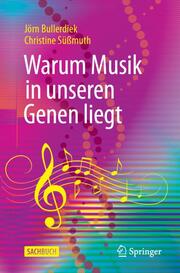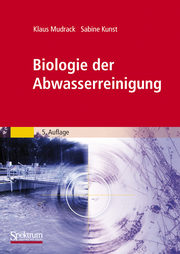Biomanufacturing
eBook
Bibliographische Informationen
Format: PDF
Digitale Rechteverwaltung: Digitales Wasserzeichen
Beschreibung
Autorenportrait
Dr.Chander Prakash is an Associate Professor at the School of Mechanical Engineering, Lovely Professional University, Jalandhar, India. He holds a Ph.D. in Mechanical Engineering from Panjab University, Chandigarh, India, and his research interests include biomaterials, rapid prototyping& 3-D printing, advanced manufacturing, modeling, simulation, and optimization. With more than 11 years of teaching experience and 6 years of research experience, he has published 50 research papers and 10 book chapters. He is also editor of 3 books and 3 journals.
Dr.Sunpreet Singh is an Assistant Professor at the School of Mechanical Engineering, Lovely Professional University, Jalandhar, India. He holds a Ph.D. in Mechanical Engineering from Guru Nanak Dev Engineering College, Ludhiana, India. His research interests include additive manufacturing, and 3D printing for the development ofnew biomaterials for clinical applications. He has published 50 research papers and 10 book chapters.
Prof.Rupinder Singh is a Professor at the Department of Production Engineering, Guru Nanak Dev Engineering College, Ludhiana, India. His research focuses on non-traditional machining, additive manufacturing and the development of porous biomaterials using 3D printing and rapid prototyping techniques. He has more than 18 years of teaching and research experience and has published 17 books and 3 book chapters.Prof. Seeram Ramakrishna is Co-Director, NUS Nanoscience& Nanotechnology Initiative (NUSNNI). He has received his Ph.D. from the University of Cambridge, and is a global leader in electrospinning and nanostructured materials. Professor Seeram Ramakrishnas research has resulted in approximately 1,000 peer-reviewed articles with over 70,000 citations and an h-index of 120. He has published 5 books and 25 book chapters. He has been recognized as a Highly Cited Researcher in Materials Science.
Prof.B. S. Pabla is the Dean of Extension Services& Consultancy and a Professor of Mechanical Engineering at the National Institute of Technical Teachers Training& Research, Chandigarh, India. His research interests include non-traditional machining, CAD/CAM, biomaterials and biomanufacturing. He has more than 37 years of teaching and research experience, and has been granted 2 patents, published 5 books, and completed more than 10 research projects from various funding agencies.
Prof.Sanjeev Puri is Head of the Center for Stem Cell and Tissue Engineering and Department of Biotechnology, Panjab University, Chandigarh, India. His research interests include biomaterials, and cell-culture and tissue engineering. He has more than 22 years of teaching and research experience and has published 50 research articles, 6 books and 3 book chapters. He is also an editorial board member for various journals. He has received numerous research grants from various funding agencies such as DBT-SERB, holds 3 patents and has completed more than 5 research projects.
Dr.Mohammad Uddin is the Program Director and a lecturer at the School of Engineering at the University of South Australia (UniSA). With more than 15 years of teaching and research experience, his interests focus on the surface engineering of biomaterials. He has published more than 50 research articles.
Inhalt
E-Book Informationen
Um die PocketBook Cloud zu aktivieren, loggen Sie sich bitte in Ihrem Kundenkonto ein und gehen dort in den Bereich „E-Books“. Setzen Sie hier einen Haken bei „Neue E-Book-Käufe automatisch zu meiner Cloud hinzufügen.“. Dadurch wird ein PocketBook Cloud Konto für Sie angelegt. Die Zugangsdaten sind dabei dieselben wie die Ihres Kundenkontos in diesem Webshop.
Weitere Informationen zur PocketBook Cloud finden Sie unter www.meinpocketbook.de.
Allgemeine E-Book-Informationen
E-Books in diesem Webshop können in den Dateiformaten EPUB und PDF vorliegen und können ggf. mit einem Kopierschutz versehen sein. Sie finden die entsprechenden Informationen in der Detailansicht des jeweiligen Titels.
E-Books ohne Kopierschutz oder mit einem digitalen Wasserzeichen können Sie problemlos auf Ihr Gerät übertragen. Sie müssen lediglich die Kompatibilität mit Ihrem Gerät prüfen.
Um E-Books, die mit Adobe DRM geschützt sind, auf Ihr Lesegerät zu übertragen, benötigen Sie zusätzlich eine Adobe ID und die kostenlose Software Adobe® Digital Editions, wo Sie Ihre Adobe ID hinterlegen müssen. Beim Herunterladen eines mit Adobe DRM geschützten E-Books erhalten Sie zunächst eine .acsm-Datei, die Sie in Adobe® Digital Editions öffnen müssen. Durch diesen Prozess wird das E-Book mit Ihrer Adobe-ID verknüpft und in Adobe® Digital Editions geöffnet.
Weitere Artikel aus der Kategorie "Biologie/Genetik, Gentechnik"
Lieferbar innerhalb 1 - 2 Wochen

Lieferbar innerhalb 24 Stunden (bei Abholung in der Filiale)

Lieferbar innerhalb 24 Stunden (bei Abholung in der Filiale)

Lieferbar innerhalb 1 - 2 Wochen

Lieferbar innerhalb 1 - 2 Wochen








